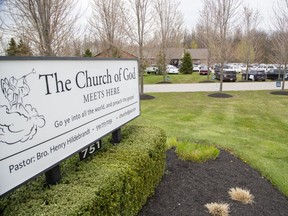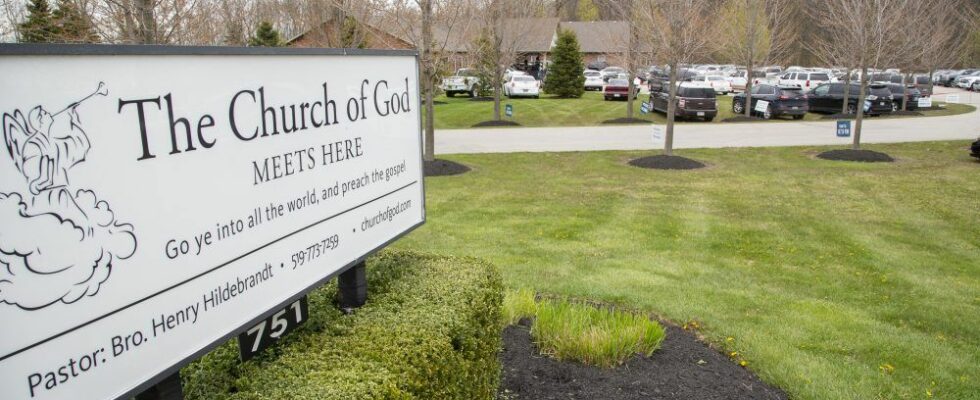Ontario’s highest court has upheld a judge’s decision that Ontario’s pandemic capacity limits were constitutionally sound, dealing a legal blow to two ultra-conservative churches that defied temporary public health laws for indoor and outdoor gatherings.

Ontario’s highest court has upheld a judge’s decision that Ontario’s pandemic capacity limits were constitutionally sound, dealing a legal blow to two ultra-conservative churches that defied temporary public health laws for indoor and outdoor gatherings.
One of the churches, Aylmer’s Church of God, was a lightning rod of far-right protest during the COVID-19 pandemic and began holding large in-person services beginning in early 2021. The other church, Trinity Bible Chapel in Waterloo Region, also disobeyed the Reopening Ontario Act gathering restrictions and held large services beginning in December 2020, just as restrictions were re-introduced during the surge of the Omicron variant.
The repeated blurring of the law led to charges and, ultimately for the Church of God, a temporary locking of the doors. Both churches brought motions to set aside court orders, arguing the province went too far and infringed on religious freedoms.
Their charges remain outstanding until all litigation has been exhausted.
A year ago, Superior Court Justice Renee Pomerance said in a written decision that while the temporary laws did interfere with religious freedom, they were “reasonably and demonstrably justified” in the face of an unprecedented public health crisis and efforts to stop the spread of COVID -19.
The churches went to the Ontario Court of Appeal, arguing the judge erred in several areas, including in her analysis involving other constitutional rights.
The appeals court dismissed the arguments and agreed with Pomerance, noting she “did not downplay the negative effects experienced by the appellants, including the impact on the psychological wellbeing of the congregants” and their ability to worship.
“She did, however, consider those effects in the context of the burdens and sacrifices borne by many individuals and communities across Ontario in the interests of public health,” the court wrote.
“Further, she balanced these burdens against the benefits of the regulations, including the evidence that lives were saved by the restrictions imposed by Ontario earlier in the pandemic.”
The court said the case “engaged the limits of institutional pluralism, balancing the accommodation of religious freedom with achieving Ontario’s objective of reducing the spread of COVID-19,” and indicated that “this balance led to policies which satisfied neither goal completely.”
However, the court saw no error in Pomerance’s analysis that while religious institutions were affected, it was “no more than reasonably necessary and for no longer than was reasonably required.”
The appeals court ordered no costs be awarded “given the importance of the issues in this appeal and the novel aspects of those issues canvassed.”
-

Criminal record hangs heavy on pastor’s son who assaulted pro-mask senior
-

Aylmer Church of God takes COVID limits charter fight to appeal court

Comments
Postmedia is committed to maintaining a lively but civil forum for discussion and encourages all readers to share their views on our articles. Comments may take up to an hour for moderation before appearing on the site. We ask you to keep your comments relevant and respectful. We have enabled email notifications—you will now receive an email if you receive a reply to your comment, there is an update to a comment thread you follow or if a user you follow comments. Visit our Community Guidelines for more information and details on how to adjust your email settings.
Join the Conversation